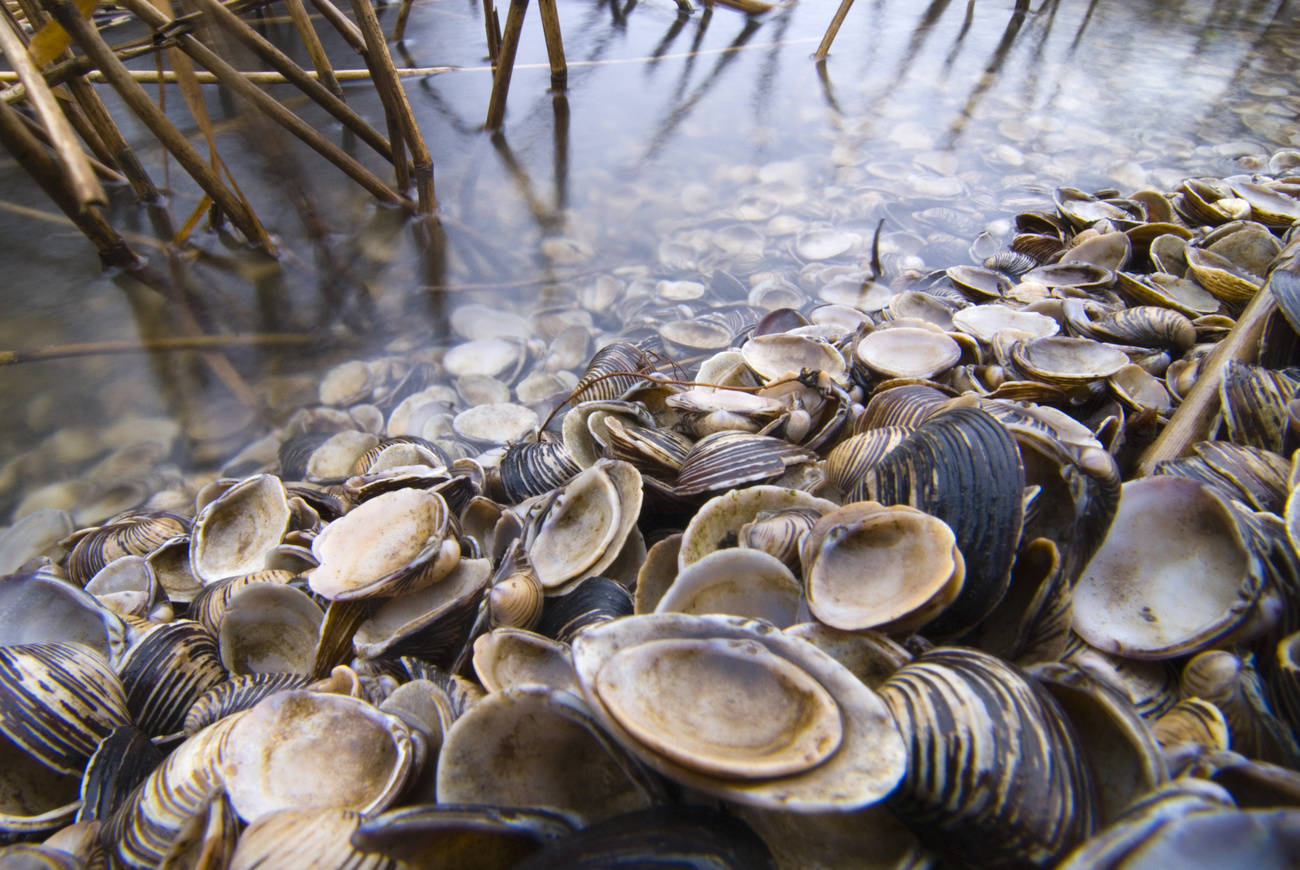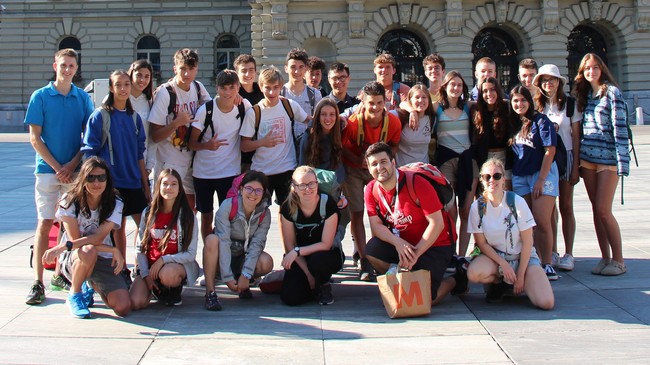
Population of invasive Japanese beetles found near Zurich

The discovery marks the first time that the pest has been found north of the Alps.
The beetles were found a few days ago in the municipality of Kloten, the site of Zurich airport, local authorities said on Tuesday.
Eradication measures have already been taken, but experts say it’s a race against time to prevent the beetle spreading through northern Switzerland and into neighbouring countries.
Private gardens in Kloten are also affected: a ban on watering lawns and green spaces is to last until the end of September. This is to prevent female beetles from laying their eggs in wet soil.
+ How Switzerland is battling invasive species
Plants which host the beetle such as roses, fruit trees and berry bushes, are to be treated with an insecticide, while green waste, compost, rooted plants and soil material may no longer be transported out of Kloten.
The 1cm-long Japanese beetle (Popillia japonica) is relatively easy to recognise, even for laypeople, due to the five characteristic bright tufts of hair on its sides.
Biological analyses should provide more information about the origin of the beetle population in Kloten in the coming weeks.
Experts say the beetles may have arrived via the nearby airport, but that it’s more likely they were carried over land from the southern canton of Ticino or from northern Italy.

More
Lake invaders: alien shellfish trouble Swiss waters

In compliance with the JTI standards
More: SWI swissinfo.ch certified by the Journalism Trust Initiative
















![The four-metre-long painting "Sonntag der Bergbauern" [Sunday of the Mountain Farmers, 1923-24/26] had to be removed by a crane from the German Chancellery in Berlin for the exhibition in Bern.](https://www.swissinfo.ch/content/wp-content/uploads/sites/13/2025/12/01_Pressebild_KirchnerxKirchner.jpg?ver=cb688ed5)














You can find an overview of ongoing debates with our journalists here . Please join us!
If you want to start a conversation about a topic raised in this article or want to report factual errors, email us at english@swissinfo.ch.